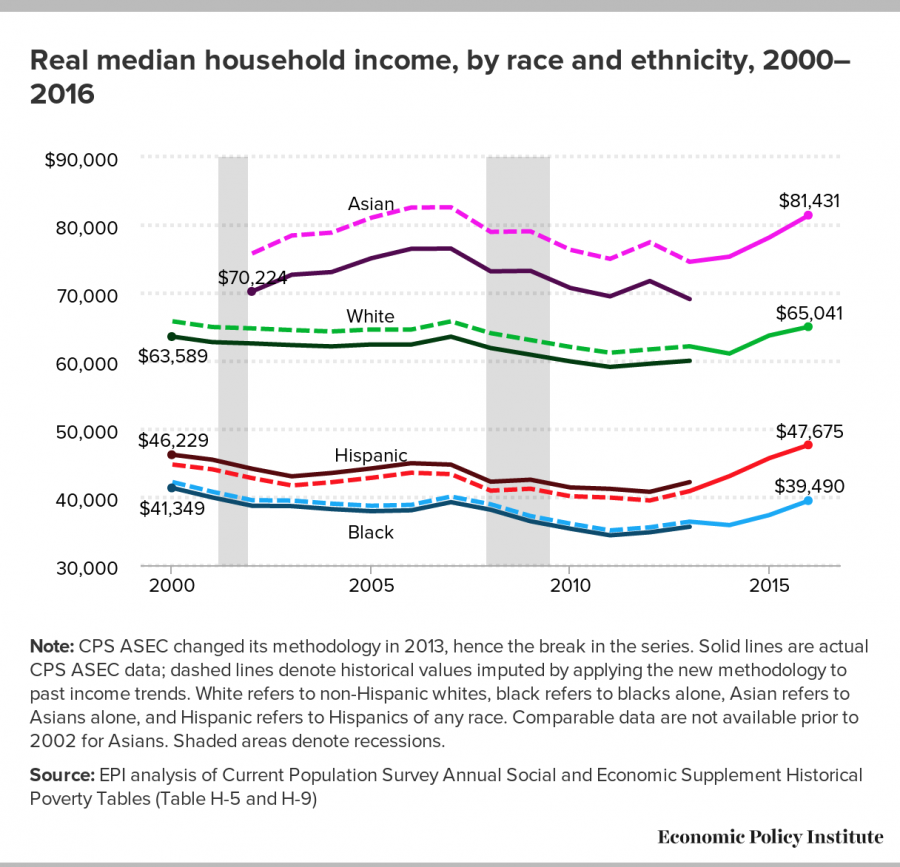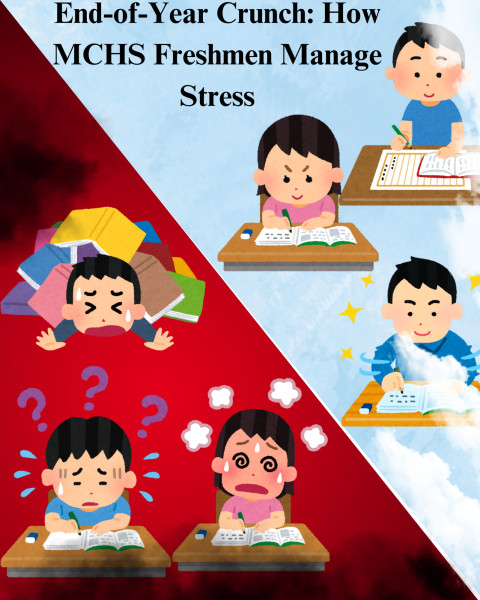Why Minorities do worse on the SAT
Minorities do worse on the SAT.
On average, minorities do worse than whites and Asians on the SAT. The reason as to why has been researched and analyzed for many years now, and the reasons are quite clear: Many minority students are victims of less than optimal cultural, environmental, and socioeconomic conditions that affect their ability to shine in academics.
This graph from Brookings, which is compiled based upon public population statistics from College Board, illustrates the differences in scores:

It must be understood that this does not mean that the SAT is biased against minorities. Correlation is not causation; the reasons for these discrepancies are more than meets the eye.
 This graph from research done by the Economic Policy Institute shows the average household income for each race group seen in the previous graph from Brookings. Comparing these two graphs shows a clear positive correlation between income and test scores. So, what does that mean for low income minority students?
This graph from research done by the Economic Policy Institute shows the average household income for each race group seen in the previous graph from Brookings. Comparing these two graphs shows a clear positive correlation between income and test scores. So, what does that mean for low income minority students?
Well, according to “Diversity Journal,” those raised in poverty tend to have overall lower achievement scores. In addition to this, many poor children lack stability in their lives as well as proper nutrition and medical care. The consequences of these circumstances, while unfortunate, are not deciding factors; there are many students from low-income families who receive higher education degrees despite their disadvantages. There are also many schools throughout the country with a large population of low income minority students that are high-achieving. It must also be noted, however, that there are a number of students from high income families who struggle with their academics. So what’s the real problem?
The real problem lies in the habits of these students. What people do and how they behave in their day-to-day lives plays a significant role in success, which isn’t a far-fetched postulate at all. Students who come from different cultures behave different from one another in their everyday lives. Problems arise when poor habits are ingrained in their culture and not corrected by parents. These are things such as skipping breakfast, watching too much television, and not reading.
Unfortunately, education isn’t as valued and revered in Hispanic and Black culture in comparison to others. As Diversity Journal explains, it is typical of Asian culture for parents to be very strict when it comes to the academic achievement of their children and hold them to high expectations. On the other side of the spectrum, however, Diversity Journal suggests that minority parents do not encourage early education because they do not see personal benefits in academics, as elaborated upon in “The Black-White Test Score Gap” by sociologists Christopher Jencks and Meredith Phillips. This is supported by 2010 U.S. census data which concluded that high school graduation rates are about 90% for Whites and Asians while Blacks have an 84% rate. As for the hispanic population, 63% receive a high school education and of those only 57% receive their diploma.
MoneyWise’s article “7 Ways Poverty Affects Education” sheds a light on a few of the poor habits present in minority cultures. These include things such as ignorance of better education, not being pushed to do well in life, and being held to low standards. A Brookings article, “The Behavioral Aspects of Poverty,” tells “A tale of two families;” One woman, the child of a poor sharecropper, supported herself by waiting tables, becoming a prostitute, and selling drugs. She had eight children to six different men, and all but two of them would go on to resonate the life of their mother. In contrast, one mother who had three children worked for 11 years at a five-dollar-an-hour job as a data-input clerk to support her family. She lived frugally, supervised her children closely, and had instilled in them a fierce desire to succeed. One of her sons, Cedric, not only became an honor student at Ballou High School, but eventually gained admittance to Brown University.
It is now clear that the disadvantages faced by low income families compound with the habits and ideologies of the culture which ultimately has a profound effect on the success, or lack thereof, of children. Pushing the importance of education, work ethic, and good habits is key to the success of all students, rich or poor.

Fun Facts:
I love math and physics; I learn them for fun.
I love the ocean and fishing, and sushi is my favorite food.
Aspiring entrepreneur....





































